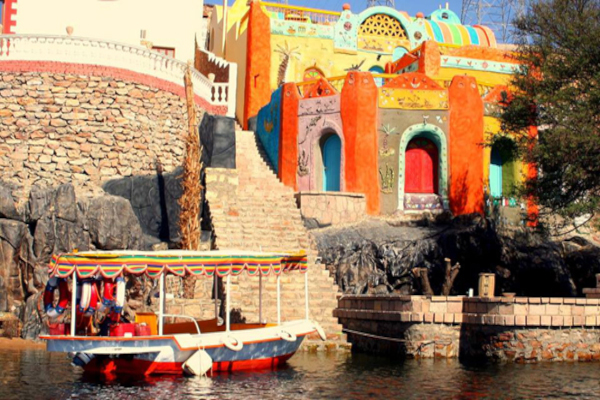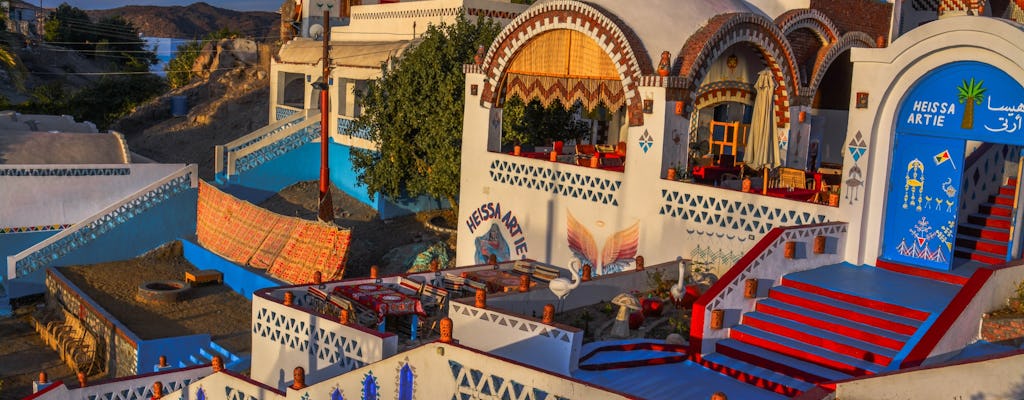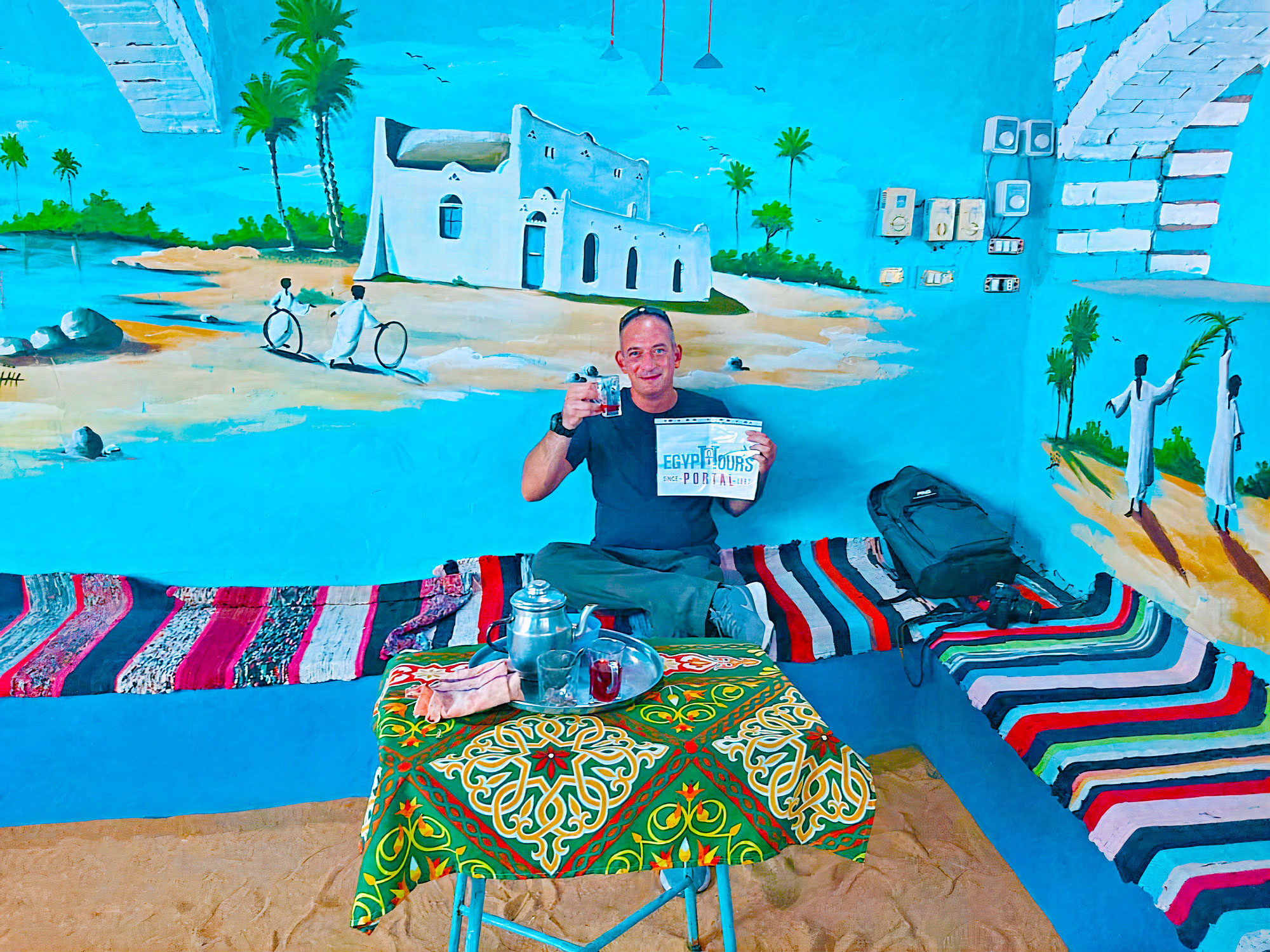
Nestled along the evocative banks of the Nile, Nubian culture is one of the oldest and most vibrant in Egypt, rich in history and tradition. Known for their strikingly colorful mudbrick houses adorned with intricate designs, the Nubians are descendants of a civilization that dates back over 8,000 years. Their unique customs include:
Experiencing a Nubian village offers a profound connection to the past and a glimpse into the daily life of its people. Visitors can expect to:
A visit to these vibrant locales not only expands one’s understanding of Egyptian culture but also supports local communities, ensuring that this extraordinary way of life endures for generations to come.

The Nubian civilization is a tapestry woven with rich history, tracing back over 8,000 years. The Nubians, descendants of the Khartoum Mesolithic culture, were pioneers in pottery and astronomy. They settled in Southern Egypt around 6,000 BCE, establishing an influential society known for its innovative agricultural practices and sophisticated craftsmanship.
Nubians had a dynamic relationship with Ancient Egypt. Valued as expert archers, they engaged in trade and cultural exchanges, but also faced conflicts during power struggles. Over time, this interaction led to significant cultural assimilation, creating a blend of Nubian and Egyptian traditions that enrich the region’s history.
Today, Nubia is divided between Egypt and Sudan, with most Nubians residing in Egypt. While they speak Arabic and practice Islam, Nubians maintain a unique cultural identity, preserving their customs and language in the face of outside influences.
The creation of Lake Nasser, resulting from the Aswan Dam projects, forced the relocation of many Nubian villages. Modern Nubians primarily engage in farming, herding, and rely on tourism to sustain their livelihoods. Visiting these communities supports their culture and helps revive admiration for their way of life.

Visiting a Nubian village from Aswan can be an unforgettable experience, and there are several ways to book your adventure. Travelers can opt for:
It’s essential to read reviews to ensure you choose an authentic experience that genuinely benefits the Nubian community.
The charm of Nubian villages lies in their unique offerings. Visitors can engage in:
These experiences not only enrich your journey but also support the community you are visiting.

A felucca boat trip along the Nile is an essential part of experiencing Nubian culture. For those preparing for this adventure, here are some journey essentials:
This serene experience not only offers beautiful views but also allows travelers to connect with the river’s rich traditions.
Feluccas come in various styles, catering to different preferences. The most common types include:
Most trips can be arranged through local tour operators, ensuring that visitors can enjoy the breathtaking vistas while supporting the Nubian community that relies on tourism for their livelihood.

Upon arriving at the Nubian village, I was immediately captivated by the vibrant colors of the houses. The light blue, orange, and yellow walls exuded joy and warmth. As we walked through the narrow streets, I admired the unique mudbrick architecture adorned with symbols and paintings. Each house told a story, and the friendly greetings from locals added to the charm.
The hospitality I experienced in the village was truly heartwarming. As we wandered, a local family welcomed us into their home, eager to share their lives. With open hearts, they showed us around their courtyard, where laughter and joy echoed. The simplicity and authenticity of their lifestyle left a lasting impression on me.
One unforgettable evening, we were treated to a traditional Nubian meal. The flavors were simply delightful – spiced chicken, rice, and fresh salads came together beautifully. As we enjoyed our food, the atmosphere transformed into a lively gathering; locals began singing and dancing, inviting us to join. This experience was not just a meal; it was a celebration of community and culture that I will always cherish.

Absolutely! Staying in a Nubian village offers an authentic experience of local culture. The colorful and warm atmosphere of the villages makes for cozy accommodations. Here are some popular options:
For a memorable stay, consider these recommendations:
Each of these accommodations enhances your visit, making it your very own Nubian adventure!

If you’re planning to explore Aswan beyond the Nubian villages, the East Bank offers a fantastic range of accommodations. From budget hostels to luxurious hotels, there’s something to fit every traveler’s needs. You’ll find:
This variety allows you to enjoy the vibrant atmosphere of Aswan while being close to key attractions.
When choosing where to stay, consider these popular areas:
Each of these areas promises a memorable stay, complementing your Nubian village adventure.

Nubian culture is steeped in a rich history that dates back thousands of years. The Nubians, descendants of the Khartoum Mesolithic culture, began settling in the southern regions of Egypt around 6,000 BCE. These early communities laid the foundation for sophisticated ways of life, characterized by:
This deep-rooted heritage continues to influence Nubian identity today.
Nubians played a vital role in the development of early civilization in the Nile Valley. Their contributions included:
Their legacy as pioneers in various fields is undeniable, laying the groundwork for future generations.

The relationship between Nubians and Ancient Egyptians was a rich tapestry of cultural exchanges. As early as 3300 BCE, the Nubians were recognized as expert archers, leading to trade and cultural assimilation. Notable interactions included:
This mingling of traditions created a unique blend of customs that can still be felt in the region today.
Nubians significantly influenced Ancient Egyptian civilization. They brought innovations in:
These contributions not only bolstered Egypt’s power but also fostered a respect for Nubian culture that endured for generations. This dynamic history underscores the enduring connections between these two remarkable civilizations.

Today, Nubian communities primarily reside in Egypt, particularly around Aswan, where they have adapted to a new way of life after multiple displacements due to the construction of the Aswan Dam. Despite these challenges, they continue to embrace their unique cultural heritage, speaking their language and practicing traditional customs. However, modern-day Nubians often find themselves balancing the preservation of their identity with the realities of contemporary life.
Tourism plays a vital role in supporting Nubian communities. By welcoming visitors into their villages, Nubians share their rich culture while generating crucial income. Key aspects include:
Supporting Nubian tourism not only enriches visitors’ experiences but also ensures the community’s vibrancy for future generations.

Reflecting on my journey through Nubian villages, I am left with a profound appreciation for the vibrant culture and warm hospitality of the Nubian people. From exploring their vividly colored homes and traditional dishes to engaging with locals who embraced us like family, every moment was enriching. This experience is a reminder of the deep connections we share as human beings.
I wholeheartedly encourage travelers to visit Nubian villages. By doing so, you not only gain unforgettable memories but also contribute to the preservation of this beautiful culture. Your support helps sustain their way of life, promoting economic growth while creating lasting bonds with the Nubian community. Embrace the adventure and immerse yourself in their rich heritage!
© 2024 Created with Seek Travel gem